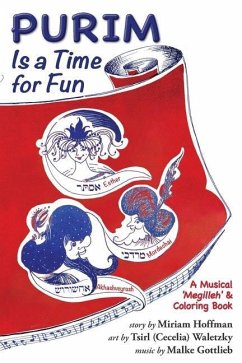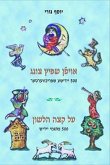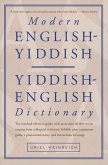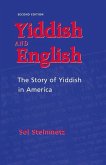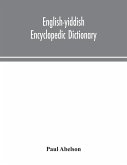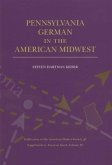Miriam Hoffman
Purim Is a Time for Fun: A Musical 'Megilleh' and Coloring Book
Dirigent: Gottlieb, Malke / Illustrator: Waletzky, Tsirl
10,99 €
inkl. MwSt.
Versandfertig in über 4 Wochen

5 °P sammeln
Miriam Hoffman
Purim Is a Time for Fun: A Musical 'Megilleh' and Coloring Book
Dirigent: Gottlieb, Malke / Illustrator: Waletzky, Tsirl
- Broschiertes Buch
- Merkliste
- Auf die Merkliste
- Bewerten Bewerten
- Teilen
- Produkt teilen
- Produkterinnerung
- Produkterinnerung
Follow the delightful and exciting story of Esther and Mordechai as they attempt to outwit the evil Haman and his attempts to destroy the holiday of Purim.
Andere Kunden interessierten sich auch für
![The Big Coloring Book of Jewish Slang: 45 Original Illustrations of Yiddish Expressions for You To Learn and Color. Comes with a Definition for Each P The Big Coloring Book of Jewish Slang: 45 Original Illustrations of Yiddish Expressions for You To Learn and Color. Comes with a Definition for Each P]() Anna NadlerThe Big Coloring Book of Jewish Slang: 45 Original Illustrations of Yiddish Expressions for You To Learn and Color. Comes with a Definition for Each P18,99 €
Anna NadlerThe Big Coloring Book of Jewish Slang: 45 Original Illustrations of Yiddish Expressions for You To Learn and Color. Comes with a Definition for Each P18,99 €![A Daily Dose of Yiddish A Daily Dose of Yiddish]() Barbara JolovitzA Daily Dose of Yiddish17,99 €
Barbara JolovitzA Daily Dose of Yiddish17,99 €![On the Tip of the Tongue: 500 Yiddish Proverbs (Engl, Yiddish, Heb & Russian) On the Tip of the Tongue: 500 Yiddish Proverbs (Engl, Yiddish, Heb & Russian)]() Yosef GuriOn the Tip of the Tongue: 500 Yiddish Proverbs (Engl, Yiddish, Heb & Russian)41,99 €
Yosef GuriOn the Tip of the Tongue: 500 Yiddish Proverbs (Engl, Yiddish, Heb & Russian)41,99 €![Modern English-Yiddish Dictionary Modern English-Yiddish Dictionary]() Uriel WeinreichModern English-Yiddish Dictionary30,99 €
Uriel WeinreichModern English-Yiddish Dictionary30,99 €![Yiddish & English: The Story of Yiddish in America Yiddish & English: The Story of Yiddish in America]() Sol SteinmetzYiddish & English: The Story of Yiddish in America28,99 €
Sol SteinmetzYiddish & English: The Story of Yiddish in America28,99 €![English-Yiddish encyclopedic dictionary; a complete lexicon and work of reference in all departments of knowledge. Prepared under the editorship of Paul Abelson English-Yiddish encyclopedic dictionary; a complete lexicon and work of reference in all departments of knowledge. Prepared under the editorship of Paul Abelson]() Paul AbelsonEnglish-Yiddish encyclopedic dictionary; a complete lexicon and work of reference in all departments of knowledge. Prepared under the editorship of Paul Abelson62,99 €
Paul AbelsonEnglish-Yiddish encyclopedic dictionary; a complete lexicon and work of reference in all departments of knowledge. Prepared under the editorship of Paul Abelson62,99 €![Pennsylvania German in the American Midwest Pennsylvania German in the American Midwest]() Steven Hartman KeiserPennsylvania German in the American Midwest14,99 €
Steven Hartman KeiserPennsylvania German in the American Midwest14,99 €-
-
-
Follow the delightful and exciting story of Esther and Mordechai as they attempt to outwit the evil Haman and his attempts to destroy the holiday of Purim.
Hinweis: Dieser Artikel kann nur an eine deutsche Lieferadresse ausgeliefert werden.
Hinweis: Dieser Artikel kann nur an eine deutsche Lieferadresse ausgeliefert werden.
Produktdetails
- Produktdetails
- Verlag: Suzi K Edwards
- Seitenzahl: 52
- Erscheinungstermin: 14. Februar 2022
- Englisch
- Abmessung: 229mm x 152mm x 3mm
- Gewicht: 82g
- ISBN-13: 9780999336571
- ISBN-10: 0999336576
- Artikelnr.: 63400271
- Herstellerkennzeichnung Die Herstellerinformationen sind derzeit nicht verfügbar.
- Verlag: Suzi K Edwards
- Seitenzahl: 52
- Erscheinungstermin: 14. Februar 2022
- Englisch
- Abmessung: 229mm x 152mm x 3mm
- Gewicht: 82g
- ISBN-13: 9780999336571
- ISBN-10: 0999336576
- Artikelnr.: 63400271
- Herstellerkennzeichnung Die Herstellerinformationen sind derzeit nicht verfügbar.
Miriam Hoffman earned her first baccalaureate (B.A.) in 1957 from the Jewish Teachers Seminary in New York, which was accepted at the New School for Social Research in New York in 1981, upon her return from a decade living in Israel. In 1982, she earned her second B.A. at the University of Miami.In 1982, Miriam was accepted at Columbia University of New York and majored in Yiddish folklore and literature, where she did all her graduate work. Today she is Professor of Yiddish language, literature, Jewish culture, Yiddish humor, classical and minor Yiddish writers, and a course called 20th Century Yiddish Literature and Film. She taught at Columbia University from 1992 to 2015.Miriam is the author of A Breed Apart: Reflections of a Young Refugee, the highly personal and historic account of the author's life that brings to light the oppression of the Soviet regime, the five-year history of the Displaced Persons Refugee Camps (DP camps) in Germany from 1946 to 1951, the struggles of post-World War II anti-Semitism, and her coming of age in America.She has also written a Yiddish textbook called Key to Yiddish, which includes scholarly research, conversation, folklore, folktales, songs, and literary works by the most acclaimed Yiddish writers and poets. Key to Yiddish also contains humorous illustrations that appeared in the Yiddish magazine Der Groyser Kundas, in print from 1911 to 1929.The very last chapter in Key to Yiddish includes Miriam's successful play called The Maiden of Ludmir, which deals with the first female Orthodox rabbi in the Ukraine of 1805-1892. The Maiden of Ludmir was performed at the Folksbiene Theater. Key to Yiddish is now used in many universities all over the world.Miriam is also a successful Yiddish playwright. She has written many plays including Reflections of a Lost Poet, which deals with the life and works of the most beloved Yiddish poet Itzik Manger and which is still being performed today both in the United States and Israel and, as of 2016, is being staged in Bucharest, Romania.Miriam has written several plays with Rena Borow, among them the play Noble Laureate. Isaac Bashevis-Singer was the Nobel Laureate for Literature in 1978, and the play is named after a since-corrected misspelling on his tombstone. The play tells of Isaac Bashevis--Singer's battle with dementia in the declining years of his life in Miami Beach, Florida. It was performed at the Queens Theater in the Park in New York City.Miriam's plays were also staged at the Folksbiene National Yiddish Theater of New York, The Yiddish Theatre of Saidye Bronfman, the Centre for the Arts in Montreal, Canada, and the Yiddishpiel Theater in Israel. Miriam is the recipient of the Israeli Tony Award for her Yiddish translation of Neil Simon's The Sunshine Boys. Her Yiddish translation of Mel Brooks's The Producers was performed to great acclaim in 2016. It ran for several months to sold-out houses at the Dora Wasserman Yiddish Theater and the Alvin Siegel Center in Montreal, Canada.Miriam is also a known Yiddish journalist and worked as a feature writer for the Yiddish Forward from 1982 to today.The years 2014-2015 saw Miriam's retirement from Columbia University after twenty-five years of dedicated work. Since then, she is still busy writing her column for the Yiddish Forward, and working on a new Yiddish play called Shiklgruber and Dzugashvili, the original names of Hitler and Stalin, a musical comedy in two acts. Miriam still lectures on the topic of "Yiddish in Living Color."
